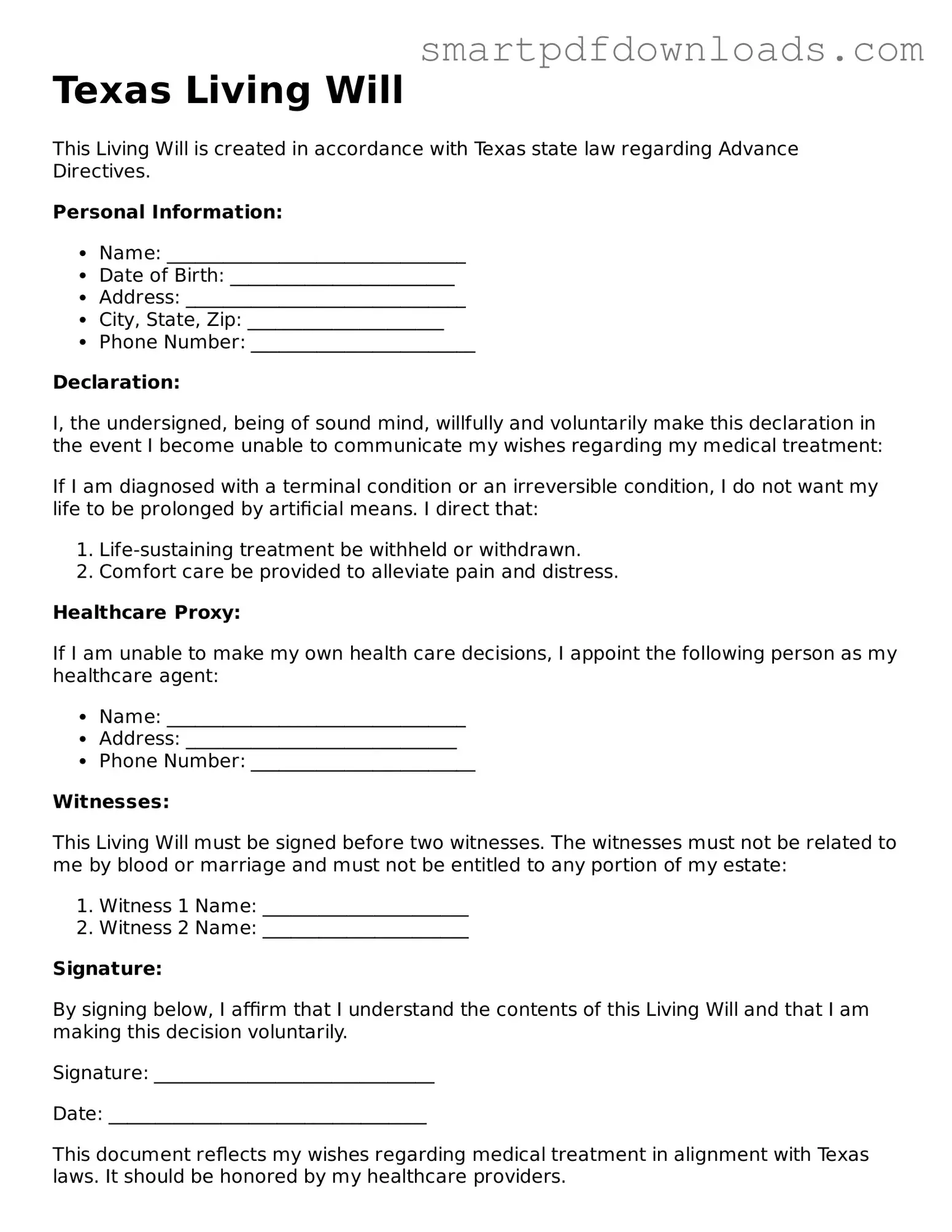Legal Living Will Form for the State of Texas
A Texas Living Will form is a legal document that allows individuals to outline their preferences for medical treatment in the event they become unable to communicate their wishes. This form is crucial for ensuring that a person's healthcare decisions align with their values and desires. By completing a Living Will, individuals can provide clear guidance to their family and medical providers during critical times.
Edit Living Will Online

Legal Living Will Form for the State of Texas
Edit Living Will Online

Edit Living Will Online
or
⇓ PDF File
Finish the form and move on
Edit Living Will online fast, without printing.